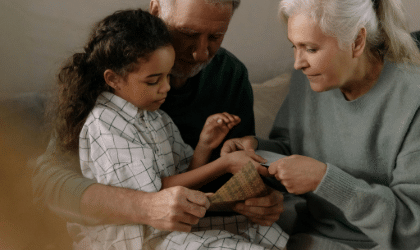We see negligent actions manifest in a variety of ways. People can act irresponsibly, as can businesses, and companies who create products. Unfortunately, so can institutions.
An institution is an established organization or corporation; it could be an establishment of public character, like a body of government, bank, or university, or could be a facility people visit to receive care, such as hospitals. Institutions are often large complex systems, which is why negligence can occur more often than many of us think.
Each unique institution must uphold a particular standard of care, and when they fail to do so, it can result in injury and other damages.
Where We See Institutional Negligence
This type of negligence can take place in a multitude of settings.
It can occur in hospitals, an institution meant to be a place of healing and rehabilitation for those who are ill and injured. Those who work in hospitals are true heroes, continually working to help people. However, we must recognize that doctors, medical professionals, and other hospital staff can make mistakes and perform below the standard of care expected of them. Hospitals may also fail to properly oversee systems in place that impede their ability to live up to the standard of care expected of them. This form of negligence can also occur in long-term care or correctional facilities.
We also see institutional negligence within prison systems. Prisons are meant to house and reform those who have committed acts against the law. Unfortunately, prisons are a common place for negligent mistreatment. Prison systems are intended to act as correctional facilities; inmates may be deprived of their freedom, but they shouldn’t be deprived of their basic rights as human beings, including safety. Brutality within the prison system has been largely reported on; rates of prisoner-on-prisoner violence is fast growing in an understaffed yet overcrowded environment. A nonchalant attitude towards the well-being of inmates is detrimental, which we can see due to the climbing rates of deaths and suicide cases. Because the standard of care within a prison already draws a blurry line, negligence is often difficult to prove, and requires the support of a skilled lawyer.
Education is one of the most powerful tools we as a society need in order to thrive. Though they are environments created to facilitate learning, schools can present many hazards and opportunities that could result in institutional negligence. Here’s an example: in chemistry class, a teacher is running an experiment. Imagine what would happen if they forgot to reinforce the importance of wearing gloves or safety goggles to their students. What if one student gets hurt due to this neglect? Similarly, students can get hurt during sport activities, or even due to school construction.
While we’ve highlighted a few key situations where institutional negligence may occur, cases can emerge from any legal, governmental, or major organization with power and resources.
How to Prove Negligence Within An Institution
Institutional negligence can be examined the way most cases involving negligence are.
First, we need to establish whether or not the institution owes the injured party a duty of care, particularly in the situation that caused the injury. Did the institution in question have a responsibility to exercise a certain level of care?
After establishing that this duty of care exists, we must ask whether or not the institution breached its duty to the plaintiff during the situation that caused the injury. The relevant question here is whether the institution fell below the standard of care owed to the injured party. In order to recover damages, the plaintiff must establish that the defendant was negligent because they performed below the standard of care and that the defendant’s negligence caused the plaintiff to suffer damages.
Other Important Considerations to the Analysis
Another relevant factor to the negligence analysis is whether the injury was a reasonably foreseeable consequence of the negligent action. If the injury complained of was not a foreseeable consequence of the negligence complained of, the defendant may suggest that damages are remote and not compensable.
Where Things May Get Tricky
While the road to proving negligence within an institution may seem black and white, we can promise you that is not the case.
Institutional negligence can be tricky to prove for a variety of reasons. Many lawyers may run into an issue when it comes to establishing an institution’s duty of care. What exactly is their duty of care? The truth is that the answer will vary depending on each specific institution. Since proving that the defendant owed the plaintiff a duty of care is necessary to prove negligence, defining what the duty of care entails is an important piece of the puzzle.
Furthermore, the investigation process is far more strenuous when institutions are involved. Countless documentation is often required, as is the research needed to determine the requisite standard of care and whether the institution has been negligent. For instance, the standard of care within a hospital will greatly differ from the standard of care within a prison. Legal research and document review is critical to understanding each individual case, and asserting the standard of care in that situation.
Poor record-keeping is another barrier that could impede a finding of institutional negligence. Missing records or even just subpar record-keeping habits could be a huge obstacle to any case, but especially when it comes to proving neglect within institutions, as they are such a large, complex system.
Let Us Be Your Solution
While the above obstacles do exist, we at Gosai Law have the tools and experience to successfully overcome them.
Research is and will always be a huge component of our approach as legal professionals. We believe that details are revealing, ultimately defining the difference between a case lost and a case won. As such, we do extensive research, speaking to outside individuals in different professions, cross-utilizing our collective experience as a team, and examining each case individually. Our investigation process is extensive, as it must be in order to prove negligence within large institutions.
As these cases are often so complex, enlisting the help of a lawyer is crucial. Lawyers are well-resourced professionals – we have the power to bring forth motions, request documentation and surveillance, and make demands for particulars. Most of all, we possess the drive to fight on your behalf. Here at Gosai Law, we are ready to be your solution.
What To Do Next
If you or someone you know has been a victim of neglect by a prison, police officer, or other institutional body, contact Gosai Law. We’re here to help.











